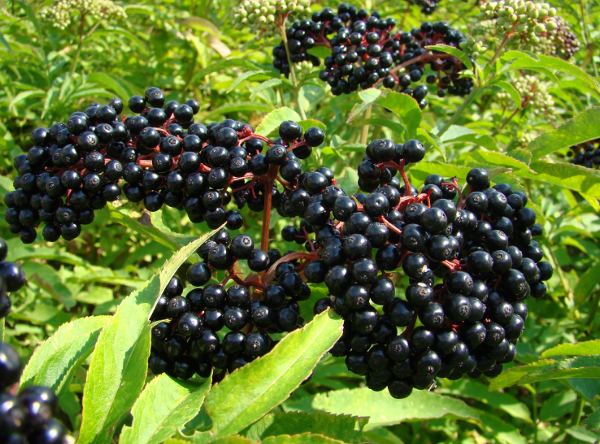Info, news & debate
Wild food

Getting started with fishing for food: Part 3 – Lobster pots
Ever fancied fishing for your supper but don’t know where to begin? In Part 3 of her Fishing for Food series, Jessie Watson Brown explores fishing with lobster pots. Possibly a more efficient approach to fishing – once you have put the pot in, it does the fishing for you, leaving you free for a …

Out of Eden: how you can get involved in a neolithic farm experiment in Wales
Dr Kevin Blockley shares how the Out of Eden project is creating a unique educational experience that immerses us in the hunter gathering world of our ancestors and our first experiments in farming.

Getting started with fishing for food: Part 2 – When and where?
Ever fancied fishing for your supper but don’t know where to begin? In Part 2 of her Fishing for Food series, Jessie Watson Brown chats with Charlie Loram about the when and where of starting fishing.

Getting started with fishing for food: Part 1 – Gear
Ever fancied fishing for your supper but don’t know where to begin? In Part 1 of her new fishing for food series, Jessie Watson Brown tackles the gear you’ll need to get started, with the help of Charlie Loram.

The surprising benefits of harvesting wild foods – more than you’d expect!
Emily Fawcett and Charlie Loram of the Old Way look at some of the less obvious benefits of harvesting wild foods as our ancestors did.

7 great reasons to try bushcraft and camping in winter
Sean Fagan of Pioneer Bushcraft explores 7 great reasons why being outdoors and camping in winter can be fun, challenging and ultimately educational – and will greatly improve your overall bushcraft and camping skills.

How to gather, store and eat sweet chestnuts
It’s that time of year when the delicious smell of roasting chestnuts fills the air. Jessie Watson Brown shares her tips for foraging, cooking and storing sweet chestnuts for year-round use.

Nettles glorious nettles… foraging tips and delicious recipes
Wild food author and foraging teacher James Wood explores one of the most common plants – nettles – and shares his wonderful recipes and tips for foraging.

Edible seaweed season has started, but the British still don’t get them…
Wild food author and expert Geoff Dann explores the overlooked edible seaweed as a delicious and nutritious addition to the wild food table and shares one of his seasonal recipes.

How might hunter-gatherers have lived on this land?
Emily Fawcett explores what it might be like to live like our ancestors, to live the old way, on this land. What would it mean to experience life and the land like the indigenous people of these islands – as hunter-gatherers, to return to the Old Way?

It can’t possibly be a bad thing to live in the wild and to harvest both plants and animals for food – can it?
A group of us are attempting to have a debate about the sustainability of meat production, but I’ve realised that our differences are much deeper.

Join our new online community Living Low Impact
We’re excited to introduce our new Facebook group Living Low Impact – and you’re invited!

It’s a mast year!
In case you hadn’t noticed… it’s a mast year!

Why we’d be better off living like the Saxons (with a few mod cons)
If you spend your life trying to promote low-impact living, you sometimes get asked the most ridiculous questions. More than once I’ve been asked something along the lines of: ‘you want to take us back to the Middle Ages, don’t you?’

If society collapses, which skills will you wish you’d learnt?
Here’s a conversation between Dave of Lowimpact.org and Nigel Berman of ‘School of the Wild’. Nigel teaches appreciation of nature and wilderness, and he’s provided us with information for our topic introduction on ‘firecraft’.

In praise of the elder tree, and how to make delicious elderberry wine really easily
Common Elder (Sambucus nigra) is a familiar sight on railway embankments, urban waste ground, and in hedgerows. This small tree thrives in particular in the north and midlands of England, growing rapidly when cut back and giving off a discomforting dusty smell in the process, along with also being very difficult to dig up.

Do you know which of these wild berries you can eat?
At Our Edible Landscape, the most recent School of the Wild event, facilitator Milly set us the Wild Berry Challenge, so we’re putting the challenge to you. Identify the berries below, and decide if you’d eat them.

Autumn foraging season soon – here’s some inspiration
Arriving at the beautiful setting of WOWO, I immediately knew I’d done the right thing ignoring cold-weather challenges to get myself to this workshop. Given the warmest of welcomes, we were invited to form a circle and take a moment to think about what plant we felt like in that moment. We were to bear …

Low-impact & the city 1: introduction – how possible is it to live in a sustainable, non-corporate way in a city?
I lived at Redfield Community for 13 years – it’s where Lowimpact.org was born – but now I live in London, and so I’m assessing my options for living as low-impact a life as I can.

Recognising wild food plants and getting in touch with your inner ape
A few summers ago I visited Monkey World, a picturesque Dorset home to mistreated apes and monkeys from across the globe. To my amazement I saw Capuchin monkeys picking blackberries and an Orang-Utan
